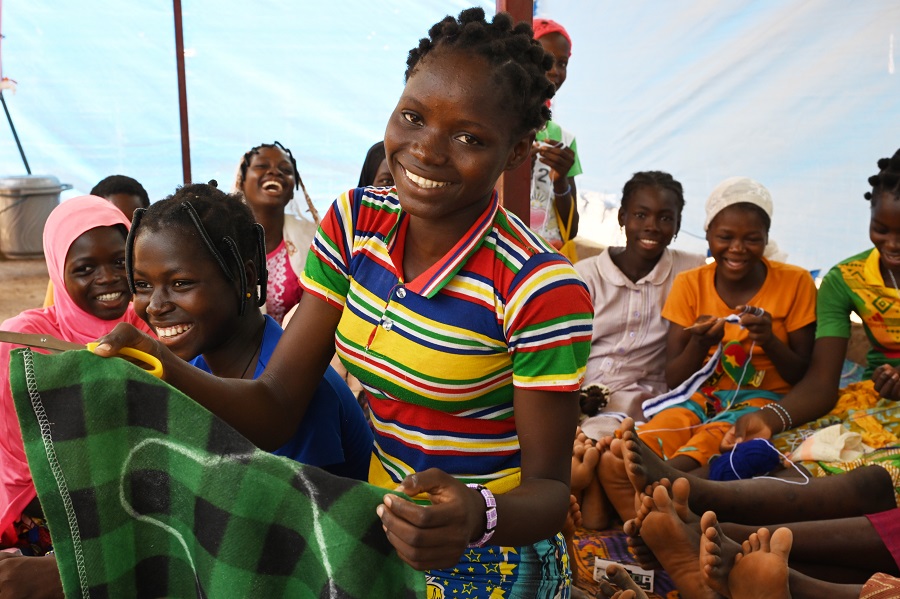WHO’s key interventions for child health and development programmes are divided into three main groups. Each group focuses on improving child survival and holistic development.
Child health and development
- Early childhood development and nurturing care: These interventions aim to promote healthy brain development, social-emotional well-being and cognitive growth. Key activities include responsive caregiving, nutrition, early learning and safety. These programmes also emphasize stimulation through play and interaction, targeting critical developmental milestones in the first 1000 days of life. The goal is to ensure that children not only survive but thrive, reaching their full potential.
- Integrated management of childhood illness (IMCI) and integrated community case management (iCCM): The IMCI provides a framework for managing major childhood illnesses like pneumonia, diarrhoea, malaria and malnutrition. It emphasizes health worker training and improved case management at health facilities. The iCCM extends these services to community settings, enabling trained community health workers to diagnose and treat childhood illnesses, especially in remote areas. Both approaches aim to reduce child mortality and morbidity.
- Well child approach: This preventive care model focuses on regular health check-ups, growth monitoring, vaccinations, and promoting healthy behaviours like nutrition and hygiene. It aims to detect and address potential health issues early, fostering overall child health and development.
Together, these interventions aim to ensure children are healthy, develop optimally and grow in nurturing environments.
Early childhood development and nurturing care
WHO outlines key interventions for early childhood development and nurturing care, aiming to foster healthy growth, development and well-being in children from birth to age 5 years. These interventions emphasize a holistic approach, recognizing the critical role of nurturing environments in shaping a child’s future.
- Responsive caregiving: Caregivers are encouraged to engage in responsive interactions with children, such as talking, singing and playing. This interaction promotes emotional security and cognitive development.
- Nutrition: Adequate nutrition is essential for brain development and overall health. Interventions focus on promoting exclusive breastfeeding for the first 6 months, followed by nutritious complementary foods. Micronutrient supplementation, like iron and vitamin A, is also emphasized.
- Early learning opportunities: Programmes support the provision of stimulating environments where children can explore, play and learn. Access to quality early childhood education enhances cognitive and social skills.
- Health and hygiene: Ensuring access to preventive health care services, including immunizations, and promoting hygiene practices reduce the risk of illness, allowing children to thrive.
- Parental support: Providing education and support for parents and caregivers enhances their capacity to provide nurturing care.
These interventions aim to ensure that all children reach their full developmental potential, leading to improved educational outcomes, health and productivity in later life.
IMCI and iCCM
Integrated management of childhood illness (IMCI) and integrated community case management (iCCM) are vital strategies outlined by WHO to improve child health, particularly in low-resource settings. These interventions focus on reducing morbidity and mortality from common childhood illnesses through a comprehensive approach.
- IMCI: IMCI is a strategy aimed at enhancing the quality of care in health care facilities. It includes training health workers to assess and classify illnesses such as pneumonia, diarrhoea, malaria and malnutrition in children under 5 years. Health workers are equipped to provide appropriate treatments, counsel caregivers on home management and promote preventive measures, including vaccination and nutrition. The aim is to ensure timely diagnosis and effective management of childhood illnesses, ultimately reducing mortality rates.
- iCCM: iCCM extends the principles of IMCI to community settings, enabling trained community health workers to diagnose and treat common childhood illnesses. This approach improves access to care for children in remote areas where health facilities may be lacking. iCCM includes treatment for conditions such as pneumonia, diarrhoea and malaria, alongside education on hygiene and nutrition.
Overall, both IMCI and iCCM aim to reduce child mortality and improve health outcomes by ensuring that children receive timely, quality care for common illnesses, thereby enhancing their chances of survival and healthy development.
Well child approach
The well child approach, as detailed in WHO documents, emphasizes the importance of regular health check-ups for children to promote optimal health and development. The key interventions associated with this approach aim to ensure that children remain healthy and are monitored for early signs of developmental issues.
- Routine health assessments: Well child visits provide systematic health evaluations, which include monitoring growth and development, assessing physical and emotional well-being, and identifying any health concerns early.
- Immunization: Ensuring timely vaccinations is a cornerstone of the well child approach. This protects children from preventable diseases, significantly reducing morbidity and mortality rates.
- Nutritional assessment and counselling: Health professionals assess dietary intake and nutritional status, providing guidance on healthy feeding practices, breastfeeding and appropriate complementary foods to promote growth.
- Parental education: These visits serve as an opportunity to educate parents about child development milestones, health promotion and disease prevention strategies, fostering an understanding of nurturing care.
- Developmental screening: Regular screenings help identify potential developmental delays or concerns, allowing for timely interventions and support.
The well child approach aims to enhance child health outcomes, reduce the incidence of preventable diseases, support healthy growth and development, and empower families with knowledge and resources.
Resources
Latest publications

Enjoying the highest attainable standards of health is a fundamental human right. Despite progress in recent decades, maternal and neonatal mortality,...

Digital adaptation kit for birth defects surveillance: operational requirements for implementing WHO...
Congenital anomalies, also known as birth defects, are structural or functional abnormalities, including metabolic disorders, that are present at birth....

The 2024 meeting of the WHO Clinical Consortium on Healthy Ageing (CCHA) was the group’s 10th gathering, held virtually on November 5-7, 2024. The...

